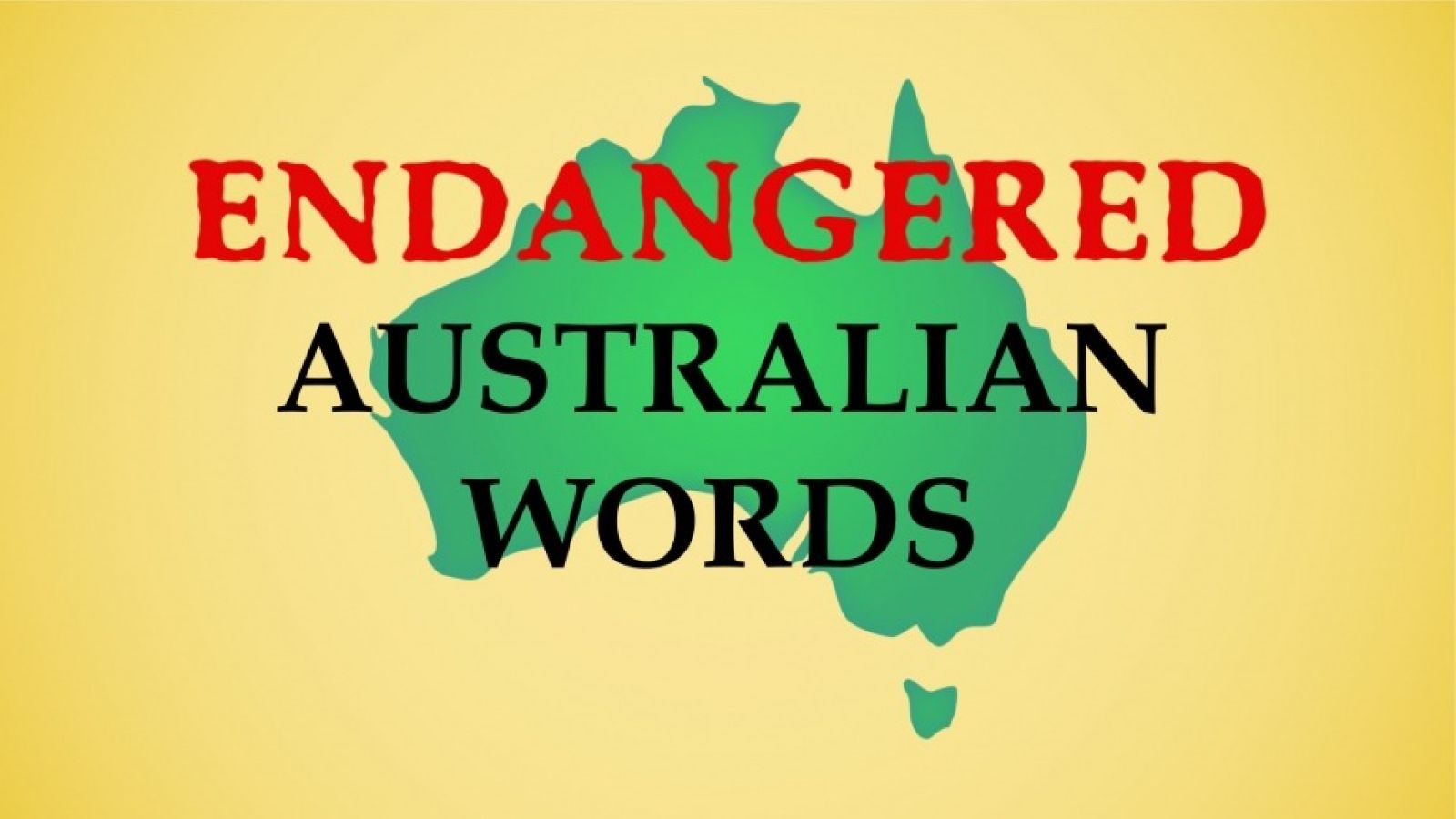Endangered Australian words

When was the last time you ate a cream between while riding a hill trolley in your finest sandshoes? Or did you spot a sticker licker during your little lunch and flick a lacker band at them?
If these words sound archaic or completely foreign to you, chances are you’re a young urbanite. Nevertheless, it’s good to know how language is changing in our own backyards – and to be aware of what words commonly used by earlier generations are on the verge of disappearing altogether.
Linguistics researcher Dr Sydney Kingstone has identified a swathe of words falling out of usage in Australia. She examined variations in and attitudes towards English in her ANU PhD research, surveying people from all over the country, living in cities and regional areas.
“As part of this project, I wanted to look at how people perceived word use differences across Australia – and I noticed that research in word use had not been thoroughly conducted in quite some time,” Dr Kingstone says.
The last comprehensive study, in fact, had been conducted 30 years ago, by fellow ANU linguist Dr Pauline Bryant.
She continues: “I worked with Pauline and my thesis panel to redevelop a survey on these terms to see how they had changed over the past 30 years.”
Many endangered Australian words are ones that are regional – specific to particular smaller communities across Australia. Dr Kingstone found that most of the people who mentioned these words were over the age of 65. The words included:
- Drawing pin (Thumb tack)
- Cream Between & Ice Cream Wafer (Ice Cream Sandwich)
- Soap Box & Hill Trolley (Billy Cart)
- Sandshoes (Sneakers)
- Slippery dip & Slippery Slide (Slide)
- Father Christmas (Santa Claus)
- Pusher (Pram/Stroller)
- Playtime & Little Lunch & Playlunch (Morning Tea/Recess)
- Bomber Brown & Grey Ghost & Sticker Licker (Parking Inspector)
- Lacker band (Rubber band)
Of that list, Dr Kingstone says that the ‘billy cart’ is rarely called a ‘soap box’ or a ‘hill trolley’ anymore. And if the current pattern of term use continues, she adds, ‘billy cart’ might be superseded in a generation or two by ‘go cart’.
In addition to individual words falling out of usage, Dr Kingstone found larger patterns of words becoming disused too.
“For example, regional words about flora and fauna are being lost – they are no longer being recognised by respondents under 25,” she says. “A number of these younger respondents did not even have a word for some of these items!”
Some of these were:
- Peewee, Mudlark, Magpie Lark, Peewit, Murray Magpie (Small black and white bird; Grallina cyanoleuca)
- Marron, Gilgie, Crawchie, Lobby, Craybob, Crawbob, Craydab, Clawchie (Yabby)
- Paterson’s Curse, Riverina Bluebell, Salvation Jane (Purple flowered plants; E. plantagineum)
As for why words like these are becoming less and less commonly used, Dr Kingstone cites a number of reasons. They include globalisation – English language media around the world spreading certain words over others – obsolescence due to technological and societal advancements (“Such as street directory, refidex and Melway being replaced by Google Maps”) as well as brand name changes (“Such as dandies, dixies, cream betweens, and by jingos”).
Cultural changes have meant that some terms are now considered inappropriate. For instance, Dr Kingstone says, regional terms for grasstree and slingshot are no longer welcome in Australia.
And, she adds, some words relating to the environment, flora and fauna – such as ‘paddymelon’, ‘peewee’, and ‘Paterson’s Curse’ – are falling out of use because of “the movement of Australians to more urban areas and climate change influencing the presence and patterns of wildlife.”
On the question of whether Dr Kingstone was sorry to see the loss of any particular words, she replies that she’s less sad about particular words falling out of use and more sad about how that’s happening.
“Smaller community words are falling out of use, while global words – words used in the media – are taking over,” she says. “I’m sad that words that people associate with their communities are being replaced by words that are less closely associated to their regional identities.”
Regional words, however, seem not just to be evaporating into the ether. Some are escaping across the ditch.
Since moving to New Zealand a couple of years ago, Dr Kingstone has noticed many regional Australian words in use in her new home country.
“For example, Kiwis call swimwear ‘togs’, processed meat is ‘luncheon’, and potato cakes/scallops are ‘potato fritters’.”
Maybe there is hope for endangered Australian words – just not in Australia.
**
Dr Sydney Kingstone is continuing to collect data for her research on “What Aussies say, where they say it, and what they have to say about it”. She has already identified a range of words we use for things, depending on the city we live in:
“Sydneysiders are known for saying ‘Cozies’, ‘Bubbler’, ‘Telegraph Pole’, and ‘Potato Scallop’,” Dr KIngstone says. “Melbourners are proud to say ‘Milk Bar’, ‘Potato Cake’, and ‘Cantaloupe’.”
She hasn’t heard as many place-specific terms from Canberrans, Darwinians, and Hobartians, however.
“I would love for people from these cities to get in touch with words used by locals!”
If you’re interested in contributing, please get in touch with Dr Kingstone via email at sydney.kingstone@anu.edu.au or through her website talkingaussie.wordpress.com.